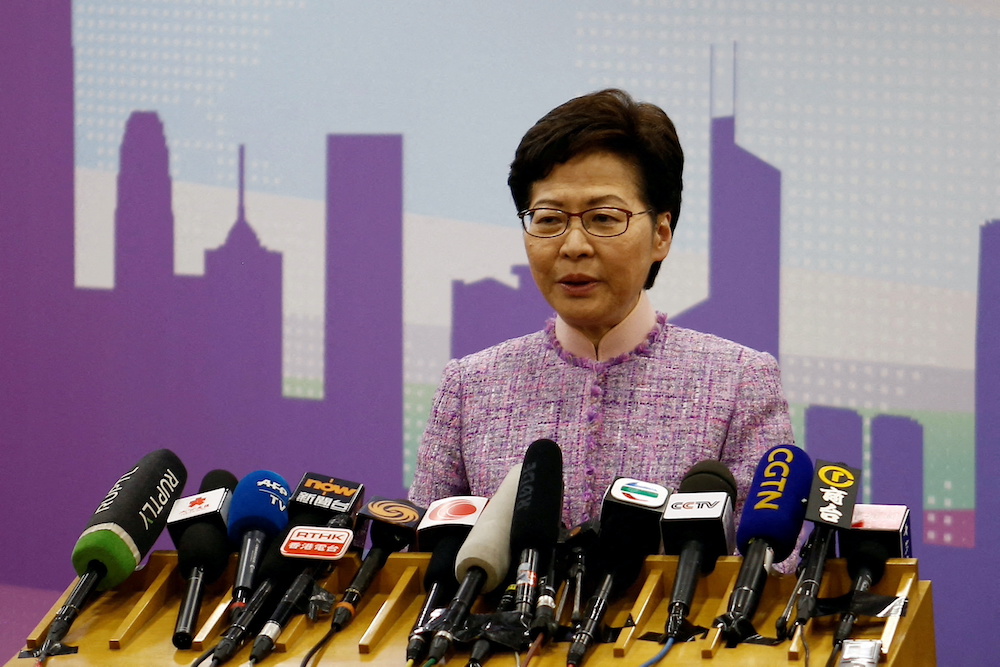Hong Kong leader Carrie Lam has ordered an inquiry into the behaviour of 13 senior government officials who attended the birthday bash of a delegate to China’s legislature, where two of the 170 guests tested positive for the coronavirus.
The officials, which include the city police chief and Home Affairs secretary, plus 19 members of Hong Kong’s new “patriots-only” legislative council – all of whom have so far tested negative – and other guests, were sent to a quarantine facility this week, as authorities scramble to contain the emergence of a new wave of cases.
Lam said in a statement late on Friday she had ordered a “detailed” investigation “as to whether the attendance of 13 officials at the banquet constitutes any breach of discipline.”
“I have instructed all officials being subject to quarantine that they should not continue to discharge their duties and that they are required to take their own vacation leave for quarantine.”
The party for the 53rd birthday of Witman Hung, a city delegate to the national legislature, took place on Monday, before new restrictions on social life came into force but after Lam appealed to Hong Kong people to avoid large gatherings.
A three-month streak of no transmission within the community ended on December 31, with the confirmation of the city’s first local infection with the fast-spreading Omicron variant.
Several more cases have been detected since and hundreds of their close contacts have been sent to quarantine.
Top Officials Apologise
Senior officials who attended included Home Affairs Secretary Casper Tsui, Director of Immigration Au Ka-wang, police commissioner Raymond Siu and the head of the city’s Independent Commission against Corruption, Simon Peh, authorities said.
All four and others have issued public apologies.
It was the second such statement for Au, who paid a fine last year for attending a dinner in a luxury private club with more people than the four allowed at the time.
The global financial hub is one of the world’s last places to stick to a goal of stopping local transmission of the virus altogether, by strict quarantines and largely isolating itself from the rest of the world.
China’s zero-Covid policy – imposed partly because of the desire to minimize disruption at the Winter Olympics in Beijing next month, and perhaps doubt over the effectiveness of local vaccines to counter the Omicron variant – has been a burden for popular tourist destinations such as Xi’an and Hong Kong, as officials have been compelled to order lockdowns and other measures to contain the spread of the virus.
The economic impact on some sectors, such as aviation, plus services such as restaurants and hotels has been severe.
Hong Kong on Friday banned dining in restaurants after 6pm, closed venues including bars and clubs, gyms, beauty salons and swimming pools, and limited group gatherings to no more than four people.
• Reuters with additional editing by Jim Pollard
ALSO SEE:
China’s Zero Covid Policy to Unsettle Markets This Year: Eurasia
Shimao Shares Fall as Exchange Suspends Developer’s Bonds
Hong Kong Could Reopen to China by February, Says Lam
























